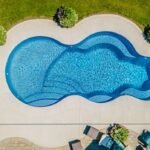Navigating contractual claims in construction can be a complex and challenging task. From my extensive experience in the field, I’ve seen how critical it is to understand and manage these claims effectively to ensure project success and maintain professional relationships. Contractual claims arise when disputes or issues emerge concerning the terms of a construction contract, impacting timelines, costs, and overall project outcomes. This article explores the essentials of contractual claims, including the various types, the process for filing and managing them, and best practices for avoiding and resolving disputes.
Overview
In this guide, we’ll dive into the different types of contractual claims commonly encountered in construction, such as delay claims, disruption claims, and additional cost claims. We’ll also walk through the step-by-step process for filing and managing these claims, highlighting the importance of thorough documentation and clear communication. Furthermore, we’ll discuss best practices for preventing claims and provide actionable tips for effectively resolving disputes. With real-world examples and expert insights, this article aims to equip you with the knowledge and tools needed to handle contractual claims with confidence.
Background
In the realm of construction, managing contractual claims is a fundamental aspect that significantly influences project outcomes. Over the years, I’ve seen firsthand how essential it is to grasp the intricacies of contract management to navigate these claims effectively.
Contractual claims arise when there are disagreements or issues related to the terms of a construction contract. These claims can stem from various factors, including delays, changes in scope, or unforeseen site conditions. Understanding the nature and implications of these claims is crucial for both preventing and resolving disputes. In my experience, having a solid grasp of contractual claims helps in mitigating risks and managing project expectations more effectively.
The importance of these claims lies in their potential impact on project timelines, costs, and overall success. A well-managed contract can prevent disputes and ensure that all parties involved are clear on their obligations and expectations. When claims do arise, addressing them promptly and efficiently helps maintain project momentum and preserve professional relationships.
Current trends and challenges in construction often bring new complexities to contract management. For example, increasing project scopes, tighter schedules, and evolving regulatory requirements can lead to more frequent and intricate claims. Staying informed about these trends and understanding how they affect contractual obligations is crucial for effective management. In my experience, proactive management and a thorough understanding of contract terms can make a significant difference in how claims are handled and resolved.
Types of Contractual Claims
In my experience managing construction projects, I’ve encountered various types of contractual claims that can significantly impact a project’s timeline and budget. Understanding these claims is crucial for effective management and resolution.
Delay Claims are among the most common. These occur when a project faces setbacks that push the completion date beyond what was initially agreed upon. Causes for delays might include unforeseen site conditions, delays in material deliveries, or changes in project scope. Addressing delay claims promptly is essential to minimize their impact on the overall project timeline.
Disruption Claims arise when the contractor’s ability to work efficiently is hindered. This could be due to changes in work sequences, coordination issues, or unanticipated site conditions. Disruption claims typically involve compensation for additional costs incurred and extended project durations caused by these disruptions.
Additional Cost Claims come into play when the contractor faces unexpected expenses that were not accounted for in the original contract. These costs might result from changes in project design, scope alterations, or increased material prices. Proper documentation and clear communication about these additional costs are crucial to substantiate such claims.
Liquidated Damages are another type of claim, usually defined in the contract, specifying a pre-determined amount that the contractor must pay for each day the project is delayed beyond the agreed completion date. This type of claim often serves as a deterrent to ensure timely project delivery and provide a clear financial remedy for delays.
Understanding these types of contractual claims helps in managing them effectively. By anticipating potential issues and maintaining thorough documentation, you can navigate claims more efficiently and keep your projects on track.
Process for Filing and Managing Claims
Filing and managing contractual claims demands a methodical approach to ensure fair resolution and minimize disruptions. Adhering to a structured process is essential for effectively navigating claims.
Begin by documenting the issue thoroughly. As soon as you identify a potential claim, collect all relevant information, including contracts, change orders, correspondence, and evidence related to the issue. This documentation is critical in establishing the validity of your claim. Comprehensive records are invaluable for proving your case and negotiating a resolution.
Notify the other party promptly. Contracts typically specify procedures and deadlines for notifying the other party about a claim. Clear, formal communication sets the stage for constructive dialogue.
Prepare a detailed claim submission. Your submission should include a clear description of the issue, its impact on the project, and the compensation or resolution you seek. Attach supporting documents and evidence to strengthen your case. A well-organized and detailed claim improves the chances of a favorable outcome.
Engage in negotiation and resolution. After submitting the claim, be ready to negotiate with the other party. This may involve discussions on the claim’s validity, potential remedies, and contract adjustments. Effective negotiation can resolve the issue amicably without escalating it further.
Maintain open communication and document everything. Keep records of all interactions related to the claim, including meetings, phone calls, and emails. This ensures all parties stay informed and provides a clear record of the resolution process.
Follow up and review the outcome. Once a resolution is reached, review the agreed terms and ensure they are implemented as specified. Reflect on the process to identify lessons learned and improve future contract management practices.
Managing claims effectively requires attention to detail, timely action, and clear communication. By following these steps, you can navigate the complexities of contractual claims and keep your construction projects on track.
Best Practices for Avoiding and Resolving Claims
From my years in construction, I’ve found that proactive measures can greatly reduce the likelihood of contractual claims and ease their resolution when they do occur. Here are some effective practices:
Maintain Clear and Detailed Documentation: Begin each project by documenting all agreements, changes, and communications thoroughly. This includes contracts, change orders, meeting minutes, and correspondence. Comprehensive documentation is crucial for resolving disputes and handling claims.
Clearly Define and Communicate Contract Terms: Ensure all parties understand the contract terms, including scope, deliverables, timelines, and payment schedules. Ambiguities can lead to misunderstandings and claims. Regular meetings to review these terms with stakeholders help maintain alignment and prevent disputes.
Implement a Robust Change Management Process: Changes are inevitable, but managing them effectively is key. Establish a formal process for handling changes, including documentation and approval procedures. Prompt and clear management of changes can prevent them from becoming claims.
Foster Open Communication and Collaboration: Encourage transparent communication among all project participants. Address issues as they arise rather than allowing them to escalate. Regular updates and open dialogue prevent misunderstandings and keep the project on track.
Conduct Regular Project Reviews and Audits: Periodic reviews help identify potential issues early. By assessing project progress and compliance with contract terms regularly, you can address issues before they become major problems.
Invest in Training and Professional Development: Ensure your team is skilled in contract management and legal requirements. Ongoing training enhances their ability to handle claims and manage contracts effectively.
By adopting these practices, you can reduce the risk of contractual claims and manage them more effectively when they arise. Proactive management, clear communication, and thorough documentation are essential for project success and positive stakeholder relationships.
Conclusion
Successfully managing contractual claims requires a proactive and informed approach. By understanding the types of claims, following a structured process, and applying best practices, you can mitigate risks and navigate disputes more effectively. Remember, thorough documentation and clear communication are your allies in preventing and resolving claims. As you apply these insights, you’ll find that a well-managed contract not only safeguards your project but also fosters positive relationships with all stakeholders involved.
In the ever-evolving landscape of construction, staying informed and prepared is crucial. Embrace these practices, continuously seek knowledge, and you’ll be well-equipped to handle any contractual claims that come your way.
Further Reading/Resources
To deepen your understanding of contractual claims in construction and enhance your management skills, I recommend exploring these additional resources. Each of these sources provides valuable insights and practical guidance that can help you navigate the complexities of construction contracts and claims more effectively.
“Project Management Institute (PMI) – Construction Management Resources: PMI offers resources and best practices related to project management and contract administration that can aid in effective claim management.
These resources offer in-depth knowledge and practical tools to help you better manage contractual claims and improve your overall contract management practices. By leveraging these materials, you can enhance your skills, prevent disputes, and ensure smoother project execution.








Leave a Reply